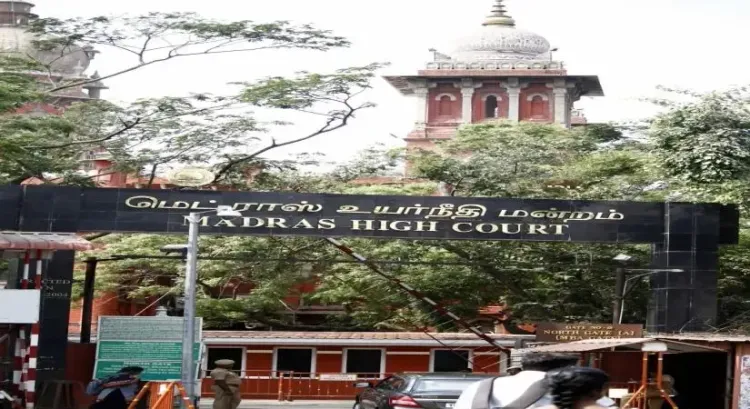Did the Madras HC Just Quash a Bribery Case Against DMK MLA S. Gandhirajan?

Synopsis
The Madras High Court's ruling to quash a bribery case against DMK MLA S. Gandhirajan raises questions about procedural integrity in election-related investigations, showcasing the need for strict adherence to legal protocols.
Key Takeaways
- Madras High Court quashed bribery case due to police procedural errors.
- Police did not secure magistrate’s approval for FIR.
- Charges were filed beyond statutory limitation.
- Allegations of unlawful assembly were found baseless.
- Case highlights need for strict adherence to legal procedures.
Chennai, May 6 (NationPress) The Madras High Court has annulled an election bribery case against Vedasandur MLA S. Gandhirajan from the DMK, highlighting significant procedural errors made by the police. Justice G.K. Ilanthiraiyan pointed out that the police neglected to obtain the necessary prior consent from the jurisdictional judicial magistrate before filing the First Information Report (FIR), as required for non-cognisable offences.
The case, which was registered under Section 171E (bribery) of the Indian Penal Code (IPC) during the Tamil Nadu Legislative Assembly election campaign on April 3, 2021, faced scrutiny.
Justice Ilanthiraiyan noted that according to Section 155 of the Code of Criminal Procedure (Cr.P.C.), police are mandated to acquire the magistrate’s approval before advancing with such cases.
In this scenario, the FIR was lodged “mechanically” without adhering to the required procedures, he remarked.
The judge also dismissed the charge sheet submitted by the Eriodu police in Dindigul district, agreeing with the MLA’s attorney, K. Muthu Ganesa Pandian, that the prosecution was riddled with several legal shortcomings.
Pointing out that the alleged offences carried a penalty of less than one year, the judge emphasized that the charge sheet should have been submitted within one year of the FIR’s registration, as per Section 468 of the Cr.P.C.
However, in this instance, the charge sheet, dated June 15, 2023, was presented to the magistrate only on February 1, 2024—well beyond the legal timeframe.
Moreover, the judge stated that the claims of unlawful assembly under Sections 141 and 143 of the IPC were unfounded, asserting that simply gathering five or more individuals doesn’t constitute an offence unless the group’s intentions align with the specific categories outlined in Section 141.
The case stemmed from a news report suggesting that Gandhirajan’s associates provided money to women voters conducting 'aarti' during his election campaign at Thottanpatti railway colony on April 1, 2021. A Block Development Officer, leading an election flying squad, lodged the complaint after viewing the footage shared on social media.






